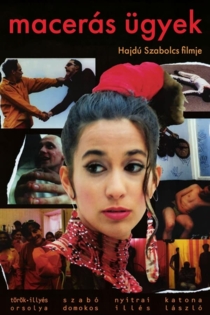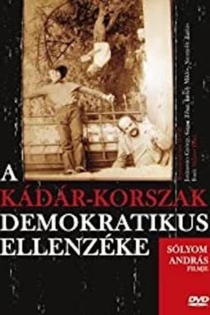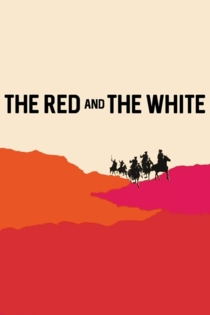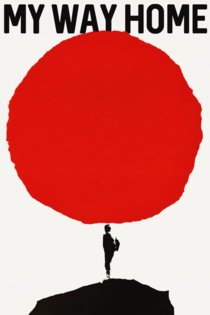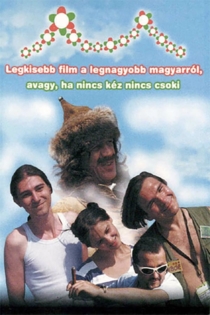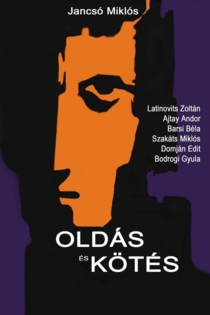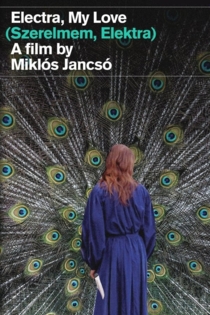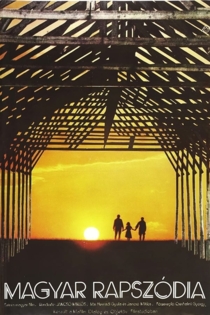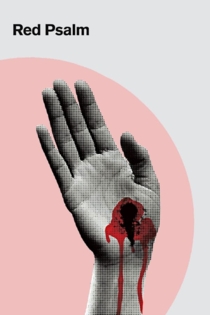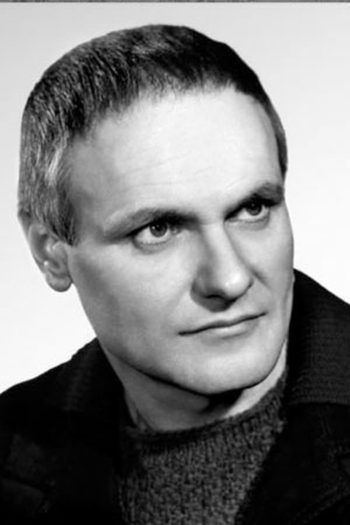
Miklós Jancsó
1921 - 2014He received five nominations for the Best Director Award at the Cannes Film Festival. winning for Red Psalm in 1972. In 1973 he was awarded the prestigious Kossuth Prize in Hungary. He received awards for his life work in 1979 and 1990, at Cannes and Venice respectively.
Description above from the Wikipedia article Miklós Jancsó, licensed under CC-BY-SA, full list of contributors on Wikipedia.
Három csillag
Miklós Jancsó, Zoltán Várkonyi
Lajos Básti, Miklós Gábor
В фильме три новеллы. Первая — о стойкости и мужестве рабочих военного завода, которые накануне вступления советских войск в Венгрию объявили забастовку. Вторая — о трех советских воинах, которые во время боя попали в крестьянскую избу, где больная женщина просила привести священника, чтобы он окрестил ее новорожденного. Воины выполнили просьбу женщины, чем заслужили ее благодарность. Уходя, они оставили мальчику на память три звездочки со своих головных уборов. Третья — о том, как советские войска, заняв один из венгерских городков, спасли жизнь большому количеству людей, скрывавшихся от зверств фашистов в одном из подземелий.
Három csillag
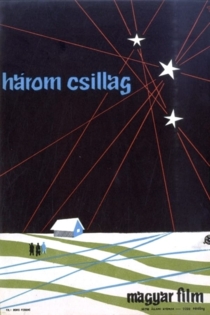
The Round-Up
Miklós Jancsó
Zoltán Latinovits, János Görbe
After the failure of the Kossuth's revolution of 1848, people suspected of supporting the revolution are sent to prison camps. Years later, partisans led by outlaw Sándor Rózsa still run rampant. Although the authorities do not know the identities of the partisans, they round up suspects and try to root them out by any means necessary.
The Round-Up
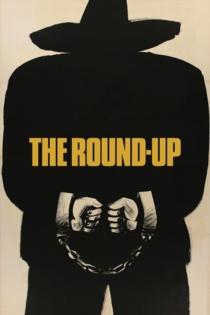
A nagy agyhalal
Pál Sándor, Károly Makk
Miklós Jancsó makes fun of his reputation for creating exceptional visuals in "A nagy agyhalál AKA The Great Brain Death." It is the most difficult vignette and while visually stunning, remains difficult to decipher, she breaks with allegorical storytelling.
The Great Brain Death

L'aube
Miklós Jancsó
Philippe Léotard, Michael York
In a drama in which even Gad has a role as well as Michael York, it is certain that serious issues are at stake. Set during the time before the state of Israel was created and established, a British officer has been captured by a band of Jewish resistance fighters with the intent of killing him at dawn. One of the Jews was sentenced to die after being captured by the English, and this death will be in retaliation. The trouble is that a young and ambivalent fighter is left holding the officer captive with orders to shoot him at the pre-arranged time. It is a long night of soul-searching before the Jewish soldier comes up with a solution to his quandary.
The Dawn

Csend és kiáltás
Miklós Jancsó
Mari Törőcsik, Zoltán Latinovits
Set during a turbulent era of disquiet, fear, persecution and terror, which permeates every corner of post-WWI Hungarian society. In 1919, after just a few months of communist rule the Hungarian Republic of Councils falls victim to a nationalist counter-revolution. Admiral Horthy, leader of the nationalist far right movement, becomes the self-proclaimed regent of Hungary, and assumes power as the legal Head of State. Soldiers of the short-lived Hungarian Red Army are now on the run from relentless secret policemen and patrol units of the nationalist Royal Gendarme. If caught, ex-Red Army soldiers are executed without mercy or proper trial. István Cserzi, a former soldier of the Red Army has fled to the Great Hungarian Plains and has taken refuge on a farm, which is run by two sympathetic women. Due to the generosity of these women and a former childhood pal...
Silence and Cry
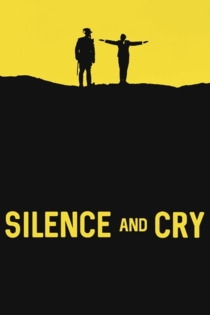
Nekem lámpást adott kezembe az Úr Pesten
Miklós Jancsó
Zoltán Mucsi, Scherer Péter
In the Kerepesi Street cemetery, three grave diggers contemplate the fate of the world, then they step out of this role and in a sequence of episodes they play the typical figures of contemporary Hungarian reality, the fat cat, the swashbuckler, the victim, underworld chieftains, and present little absurd dramas of love, marriage, friendship, public order and legal safety. The author and the film director walk among them all the time, contemplating, laughing at their plays. The stories starting from the graveyard and returning there warn of the inevitability of death. The author and the director (Gyula Hernádi and Miklós Jancsó) wisely make friends with death.
The Lord's Lantern in Budapest
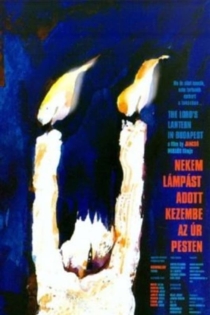
Allegro Barbaro
Miklós Jancsó
György Cserhalmi, Czinkóczi Zsuzsa
Zsadányi flees from the authorities with his goddaughter, Bankós Mari, and they escape into the forest. The film then skips ahead thirty-fold years: Zsadány and Mari are now lovers, with the sound of war in the background halting their romance. The old friends of Zsadányi have joined with the Nazis, and the landowner living with his peasants in a socialist community grows distant from them. Zsadányi is held responsible for political problems in the country, and will pay with his life.
Allegro Barbaro
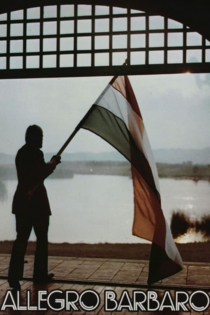
Macerás ügyek
Szabolcs Hajdu
Orsolya Török-Illyés, Domokos Szabó
A girl is on the skids because of love. A shorttempered and passionate young man falls in love with the girl. His emotions are so powerful that he is prepared to surrender his whole personality. The boy has a good friend, who is not sure whether their bond is friendly or homosexual. Before the girl arrived, the friendship was close, but now she has thrown a spanner in the works. How do they react to the new situation?
Sticky Matters
